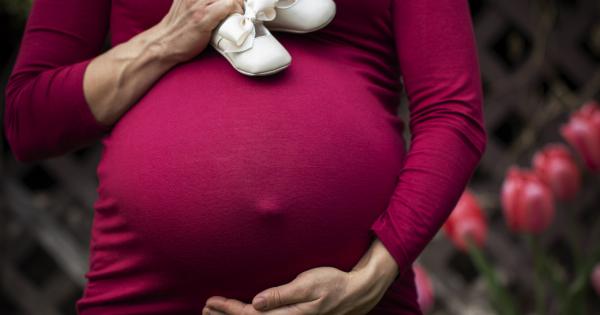During pregnancy, it is essential for the fetus to receive an adequate supply of nutrients and oxygen to grow and develop properly. In this article, we will discuss the ways in which the fetus receives these vital substances.
The Placenta
The placenta is an organ that grows inside the uterus during pregnancy. It provides the fetus with essential nutrients and oxygen and removes waste products.
The placenta attaches to the wall of the uterus and is connected to the fetus by the umbilical cord.
The placenta is responsible for the exchange of gases, nutrients, and waste products between the mother and the fetus. Oxygen and nutrients from the mother’s bloodstream pass through the walls of the placenta and into the fetal bloodstream.
At the same time, waste products from the fetus, such as carbon dioxide, transfer into the mother’s bloodstream, and the mother’s body eliminates them.
The Umbilical Cord
The umbilical cord is a flexible, rope-like structure that connects the fetus to the placenta. It contains three blood vessels: one vein and two arteries. The vein carries oxygenated blood and nutrients from the placenta to the fetus.
The arteries carry deoxygenated blood and waste products from the fetus back to the placenta.
Maternal Nutrition
The fetus receives nutrients from the mother’s bloodstream through the placenta. Therefore, it is essential for the mother to eat a healthy and balanced diet during pregnancy to ensure an adequate supply of nutrients to the fetus.
A diet rich in fruits, vegetables, lean protein, whole grains, and healthy fats is recommended.
In addition to a healthy diet, pregnant women should also take prenatal vitamins. These supplements contain essential nutrients such as folic acid, iron, and calcium, which are crucial for fetal development.
Maternal Health
Maternal health also plays a vital role in fetal development. Conditions such as high blood pressure, gestational diabetes, and preeclampsia can significantly impact fetal growth and development.
Pregnant women should receive regular prenatal care, including monitoring for these and other conditions.
Maternal substance abuse, such as smoking, alcohol consumption, and drug use, can also have adverse effects on fetal development. It is important for pregnant women to avoid these substances for the health of their fetus.
Fetal Circulation
The fetal cardiovascular system is different from the adult cardiovascular system. The fetal heart pumps blood through the umbilical cord to the placenta, where it picks up oxygen and nutrients and then returns to the fetal heart.
The fetal heart also has a bypass system that diverts blood away from the lungs and into the systemic circulation.
After birth, the fetal circulation changes to the adult circulation pattern. The lungs take over the task of oxygenating the blood, and the bypass system closes. The umbilical cord is clamped and cut, and the placenta is delivered shortly after the baby.
Conclusion
In conclusion, the placenta and the umbilical cord are responsible for providing the fetus with nutrients and oxygen during pregnancy. Maternal nutrition, health, and lifestyle choices are also crucial factors in fetal development.
It is essential for pregnant women to receive regular prenatal care and to make healthy choices for themselves and their developing fetus.





























